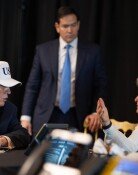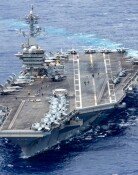[Op-Ed] Year of the Formidable Tiger China?
[Op-Ed] Year of the Formidable Tiger China?
Posted January. 02, 2010 08:38,
Chinese President Hu Jintao in his New Year address Friday pledged to achieve qualitative economic growth through active fiscal measures and appropriate financial policies. He also emphasized the importance of global cooperation to deal with the economic crisis. In particular, Hu said the objective of Chinas diplomacy is to achieve global peace and grow together with other countries, adding Beijing will consistently take the path of peaceful development. The Japanese media network NHK said Hus speech aimed to win over the international community, which is increasingly worried over Chinas growing influence on the global stage. Beijing is taking the leading role in helping the world economy recover from the global economic crisis, lifting itself from the downturn faster than any other country.
The International Monetary Fund projected last year that the world economy would decline 1.1 percent and that the economies of 30 member centuries of the Organization for Economic Cooperation and Development would contract an average 3.4 percent. The U.S. economy declined 2.7 percent, Japans 5.4 percent, and the European Unions 4.2 percent. By contrast, Chinas national information center forecast its economy would grow 8.5 percent last year. Its GDP is expected this year to be the worlds second largest, overtaking Japans.
In 1985, the U.S. signed an agreement with Japan and Germany forcing them to appreciate their currencies to reduce the U.S. current account deficit. The Plaza Agreement, the U.S.-led coordination system of the global economy, is no longer effective, however, due to Chinas rapid rise. Though Washington has repeatedly urged Beijing to appreciate its currency yuan to reduce their trade deficit, China has declined, saying the problem lies in the excessive consumption of the American people. Unlike the Group of Seven, which brings together the seven major economies committed to democracy and market economics, the G2, referring to the U.S. and China, is unstable since both sides have common and conflicting interests.
Korea began pursuing export-driven economic development in the early 1960s ahead of China. Taking advantage of its head start and the political turmoil stemming from Chinas Cultural Revolution of the 1960s and 1970s, Korea became a wealthier country than China. Things are dramatically changing due to Chinas rapid growth, however. If Korea fails to wisely respond to the effects of Chinas emergence, the economy will greatly suffer. The Korean government should remain vigilant and accurately read changes in China.
Editorial Writer Kwon Soon-hwal (shkwon@donga.com)







